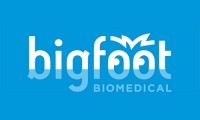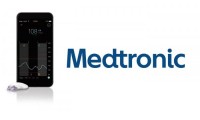-
Parkinson’s gene initiates disease outside of the brain
- Source: sciencedaily
- 879
- April 2, 2018
-
Calorie restriction trial in humans suggests benefits for age-related disease
- Source: sciencedaily
- 807
- April 2, 2018
-
Nine digital health mergers and acquisitions from the first quarter of 2018
- Source: MobiHealthNews
- 703
- April 2, 2018
-
Siren launches smart sock for diabetes patients, announces $3.4M in funding
- Source: Mobile Health News
- 987
- April 2, 2018
-
Third Rock debuts immunometabolism startup Rheos with $60M launch round
- Source: pharmacompass
- 889
- March 30, 2018
-
Merck KGaA adopts Medisafe medication adherence tool for patients with chronic conditions
- Source: MedCityNews
- 858
- March 30, 2018
-
Alnylam Presents New Clinical Results from the APOLLO Phase 3 Study of Patisiran at the 16th International Symposium on Amyloidosis
- Source: biospace
- 791
- March 30, 2018
-
Bigfoot brings in $55M Series B to propel integrated diabetes platform
- Source: MedCityNews
- 1,111
- March 30, 2018
-
FDA clears Medtronic’s smartphone-connected CGM for MDI users
- Source: mobihealthnews
- 1,088
- March 30, 2018
-
China’s Adagene raises $50M to take anticancer antibodies into the clinic
- Source: FierceBioTech
- 810
- March 30, 2018
your submission has already been received.
OK
Subscribe
Please enter a valid Email address!
Submit
The most relevant industry news & insight will be sent to you every two weeks.













